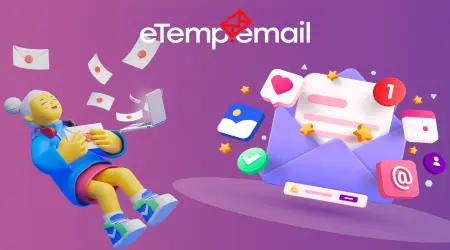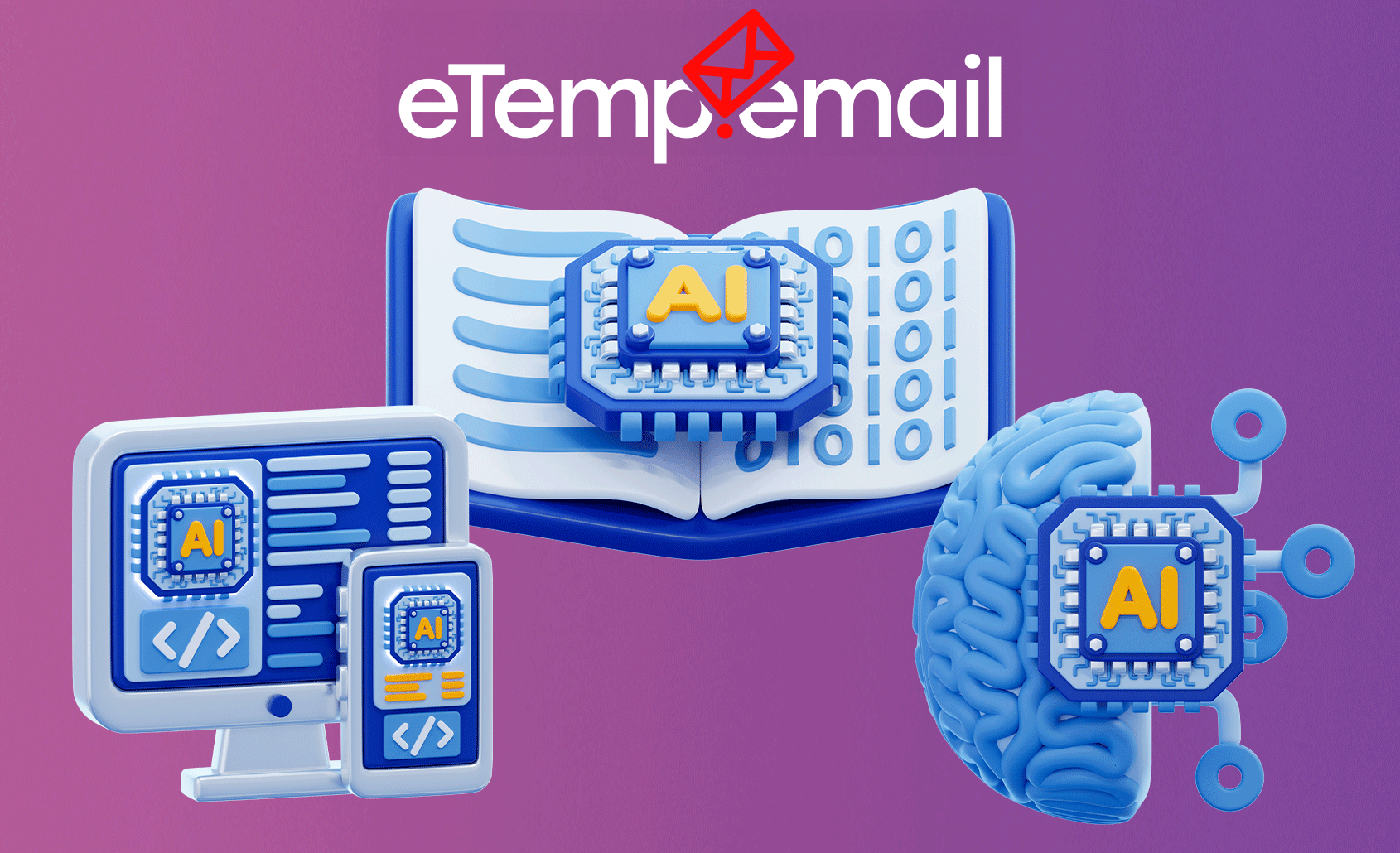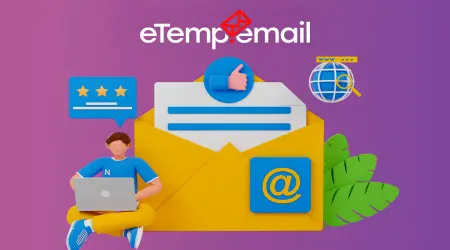

Quantum Machine Learning: How Quantum Computers Are Accelerating AI
In 2025, Quantum Machine Learning (QML) is rapidly catalyzing a new era of Artificial Intelligence (AI). By leveraging the unique capabilities of
But how precisely is QML reshaping the technological landscape? What benefits does it bring to industries ranging from medicine to cybersecurity? And why does data protection remain an absolutely critical element within this profound technological revolution? In this article, we'll delve into the fundamental concepts of quantum machine learning, explore its cutting-edge advancements, and demonstrate how eTemp.email helps you interact securely and privately with these advanced AI platforms.
What Is Quantum Machine Learning? The Intersection of Two Frontiers
Quantum Machine Learning is an interdisciplinary field that marries the principles of quantum computing with the algorithms of Artificial Intelligence. Unlike classical computers that rely on bits (which can only be in a state of 0 or 1), quantum computers operate with qubits. These qubits can exist in a superposition of multiple states simultaneously, allowing quantum machines to perform highly complex calculations exponentially faster for certain types of problems.
QML applies these unique quantum capabilities to accelerate and enhance various machine learning tasks. This includes processing enormous datasets, optimizing the performance of complex AI models, and identifying intricate patterns within data that would be intractable for even the most powerful classical supercomputers.
Advances in Quantum Machine Learning: Real-World Impact in 2025
In 2025, QML is already demonstrating tangible and significant progress across several key areas:
- Algorithm Optimization: Quantum algorithms, such as the Quantum Principal Component Analysis (QPCA), are proving highly effective at reducing the time required for complex data processing tasks. In certain scenarios, these quantum methods can cut data analysis time by as much as 50% compared to their classical counterparts, leading to faster insights.
- Accelerated Neural Network Training: QML is significantly speeding up the training of deep neural networks, particularly for tasks that involve vast datasets and complex pattern recognition. This acceleration makes AI systems more efficient and capable, improving performance in applications like high-resolution image recognition, natural language processing, and advanced predictive analytics.
- Big Data Processing: Quantum computers excel at analyzing massive datasets. QML algorithms are being developed to process gigabytes and even terabytes of data (common in fields like finance and medicine) in seconds, rather than the hours or days it might take classical systems. For example, recent quantum research has shown the potential to reduce the time required for genomic data analysis by a significant margin.
How Is QML Changing AI? Industry-Wide Transformation
Quantum machine learning is poised to transform numerous industries by making AI faster, smarter, and more capable:
- Medicine and Healthcare: QML is accelerating the analysis of complex genetic data, enabling breakthroughs in
personalized medicine - Finance and Investment: Quantum algorithms are being applied to optimize investment portfolios, identify subtle market trends, and perform risk analysis with unprecedented accuracy. This can lead to more profitable trading strategies and more resilient financial systems.
- Cybersecurity: QML is enhancing threat detection algorithms, allowing AI systems to identify and respond to sophisticated cyberattacks (including zero-day exploits and polymorphic malware) with greater speed and precision than ever before. This is particularly crucial in an era where
quantum threats
These combined capabilities are making AI more powerful and accessible, but they also inherently increase the volume and sensitivity of data being processed and shared by users, emphasizing the need for robust data protection.
Risks and Challenges: Securing the Quantum-AI Frontier
The rapid digitalization and integration of QML and advanced AI systems introduce new and complex cybersecurity challenges:
- Sensitive Data Leakage: AI and QML platforms often require access to highly sensitive information for training and operation, including personal data, financial records, medical histories, and proprietary business data. A breach on these platforms could lead to significant privacy violations, financial fraud, or industrial espionage.
- Phishing and Social Engineering: Cybercriminals are increasingly creating sophisticated fake AI testing sites, deceptive QML service portals, or fraudulent investment opportunities to trick users into revealing their credentials, private keys, or other sensitive information.
- Quantum Threats to Current Encryption: The very quantum computers that power QML also pose a theoretical threat to current, widely used encryption methods. Once powerful enough, these machines could potentially break traditional cryptographic algorithms, making all previously encrypted data vulnerable. This necessitates the development and implementation of quantum-resistant cryptography.
To interact securely with AI and QML platforms and mitigate these emerging risks, it is paramount to prioritize your digital privacy. Always use
The Future of QML by 2030: AI's New Standard
By 2030, quantum machine learning is projected to become a mainstream and standard component of advanced AI systems. Experts predict:
- Unprecedented Scalability: Continued increases in the number of stable qubits will enable QML systems to tackle problems currently inaccessible to even the most powerful classical computers, leading to breakthroughs in areas like complex system optimization and drug discovery.
- Deeper Integration with Virtual Worlds: QML will significantly enhance the personalization and responsiveness of
meta-universe environments - Widespread Quantum-Resistant Algorithms: New encryption methods, impervious to quantum attacks, will become standardized across digital systems, protecting data from the potential threats posed by future, powerful quantum computers.
- Broader Accessibility via Cloud Platforms: Leading technology providers are already investing heavily in QML platforms accessible through cloud services, making this powerful technology increasingly available to businesses, researchers, and developers worldwide, fostering innovation across numerous sectors.
How Does eTemp.email Help in the Age of QML? Your Digital Privacy Guard
Engaging with emerging QML and AI platforms—whether it's subscribing to cloud-based quantum computing services, testing new machine learning tools, or exploring AI research initiatives—often involves initial registration and inherently carries new data privacy risks. eTemp.email serves as an indispensable tool for safeguarding your privacy and security in this evolving environment:
- Create Temporary Email Addresses in Seconds: Rapidly generate unique, disposable email addresses for each new AI/QML service you want to explore, without exposing your primary, long-term email.
- Avoid Phishing and Spam: Shield your main inbox from unwanted marketing communications, newsletters, or malicious phishing attempts that might originate from less secure or experimental AI platforms.
- Maintain Anonymity While Testing Advanced Technologies: Explore and experiment with cutting-edge AI and QML applications and beta environments without linking your personal identity or primary email to potentially unknown data collection practices.
- Isolate Risk: If an AI or QML platform experiences a data breach, only your temporary email is compromised, keeping your primary digital identity secure and preventing unwanted information from reaching your main inbox.
Conclusion
Quantum machine learning in 2025 is rapidly accelerating AI, opening up unprecedented opportunities in fields like medicine, finance, and cybersecurity. However, as digitalization and data processing capabilities increase, data protection becomes an even greater priority.
By leveraging trusted tools like eTemp.email, you can securely interact with cutting-edge AI platforms, experiment with new QML services, and contribute to the quantum revolution without risking your personal data. Try




